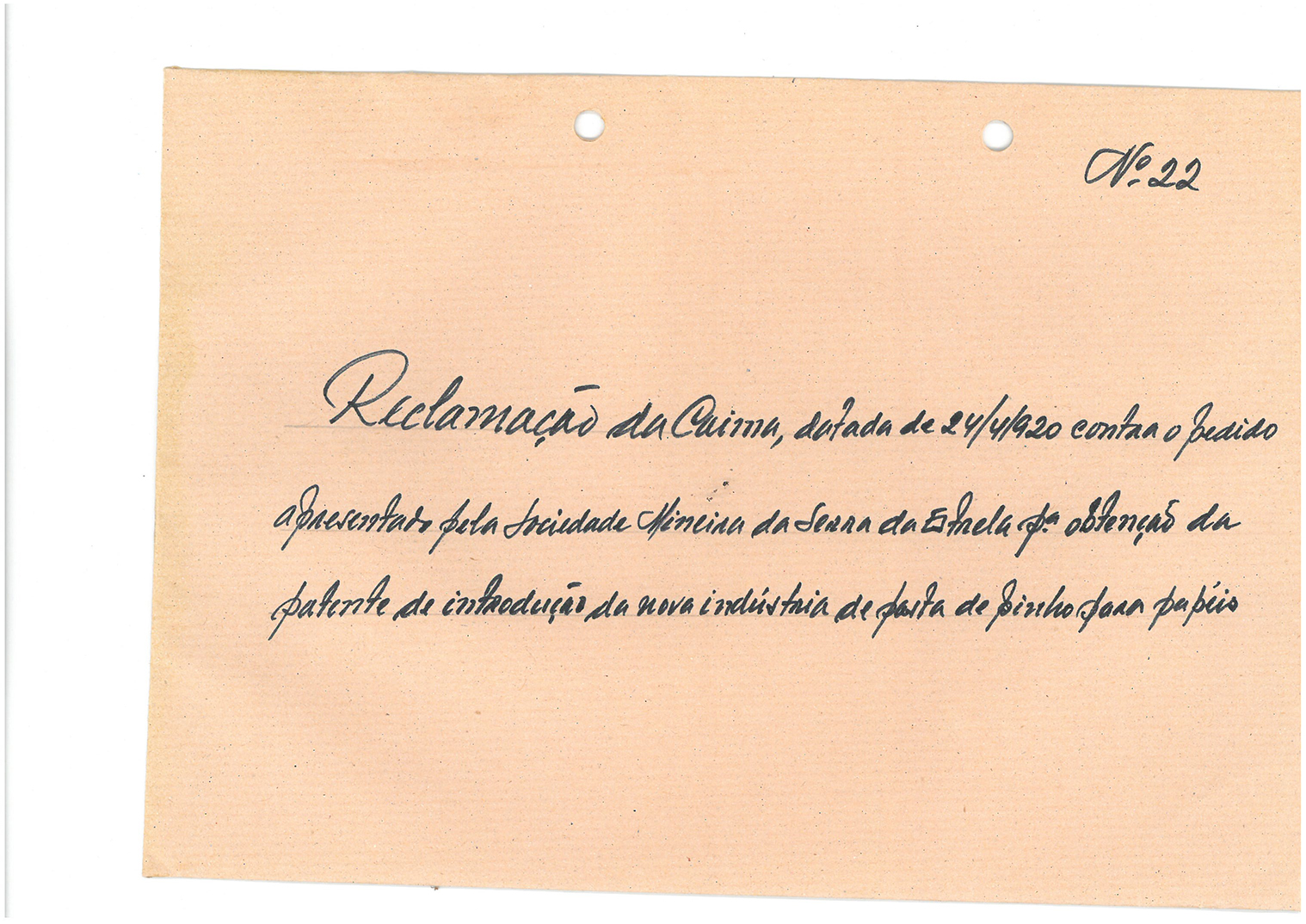Patently obvious
The patent application to create a new industry in Portugal dedicated to the production of pulp extracted from pine timber was contested by Caima. Did it succeed?
There aren’t many companies in Portugal that can be as proud of such longevity as Caima. The company is intertwined with the history of Portugal and its legacy should be treated, studied and safeguarded with the respect it deserves. After the end of the First World War (1914-1918) Portugal went through a period of social and political upheaval. The then newly-formed Republic was experiencing some major political turbulence. It was whilst sifting through part of Caima’s historical documents relating to that era that some papers were found pertaining to the opposition lodged by The Caima Timber Estate and Wood Pulp Company, Limited on 2nd January 1919, to a patent application for the creation of “a new industry, which produces pulps, extracted from pine timber”.
The patent application was made by the company Sociedade Mineira da Serra da Estrela, Lda. The opposition to the patent filed by Caima was lodged with the Porto Commercial Court at a cost of 2 escudos and 95 centavos. Caima’s reasoning set out on 18th May 1920, in its petition submitted to the Minister for Commerce and Communications of the time, Ernesto Navarro, was founded on the legal principle of associated imperative whereby in order to grant a patent to a new industry, it would be necessary for there to be no other company in Portugal, on the date of the patent application, working or operating with that technology or process
The Caima Timber Estate and Wood Pulp Company, Limited had been working in the production of pulp extracted from pine timber since 1888, at its factory located in Albergaria-a-Velha. This 31-year period prior to the application working in the so-called “new industry” was decisive in requesting the State not to grant the patent to the company Sociedade Mineira da Serra da Estrela, Lda. This would have limited the development of this industrial business activity, forcing existing companies to pay royalties to the patent holder. The State ended up not granting the patent.


